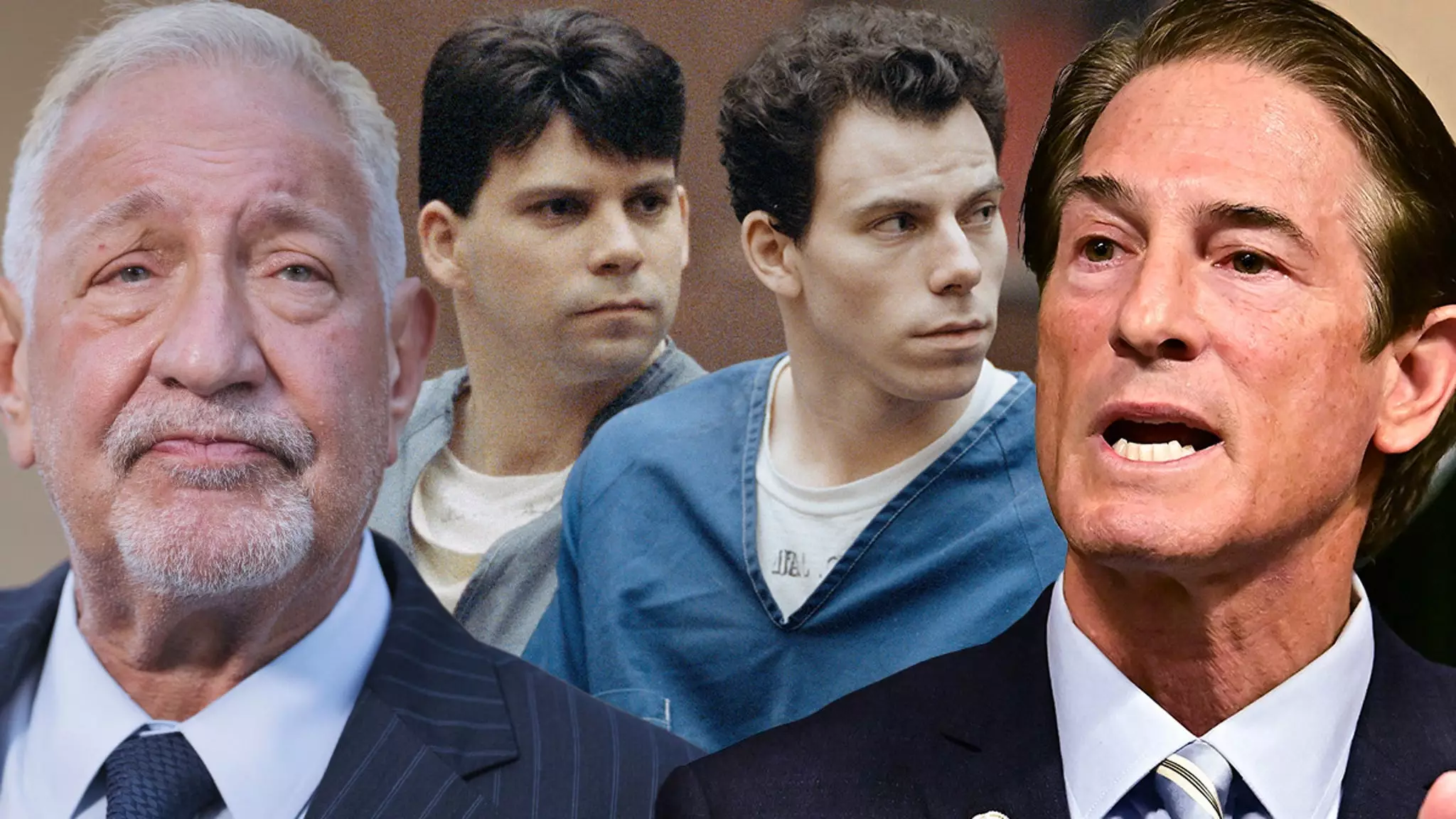In a legal saga that continues to reverberate through the American justice system, Erik and Lyle Menendez are more than just names in a notorious case; they represent the complex intersections of trauma, family dynamics, and societal perceptions of justice. The brothers, who were convicted in the early ’90s for the brutal murders of their parents, have spent decades behind bars grappling with the consequences of a childhood marred by abuse. Their recent bid for resentencing, however, has reignited discussions about the roles of personal history, public perception, and legal accountability in criminal cases.
Controversy Surrounds the DA’s Decision
Los Angeles County District Attorney Nathan Hochman recently confirmed he will remain on the case, despite calls from the Menendez brothers’ legal team to recuse himself. Hochman argues that there are no legal grounds for his withdrawal and describes the defense’s request as a “drastic and desperate step.” This assertion raises profound questions about impartiality and conflict of interest, especially given Hochman’s deep roots in Beverly Hills, where the murders took place, and his childhood connection with the Menendez family. Critics, including family attorney Bryan Freedman, feel Hochman’s involvement distorts justice, alleging a violation of Marsy’s Law, which is designed to protect the rights of victims.
Freedman, in his critique, paints a vivid picture of a District Attorney more interested in maintaining a public persona than addressing pressing social issues. His claim that Hochman is “out of touch with reality,” especially in light of rampant crime in Los Angeles, resonates with many who view political ambitions as overshadowing genuine efforts to address the issues facing the legal system. The abrasive dynamic between the DA’s office and the Menendez defense team underscores a critical aspect of the legal arena: the influence of image and media on public perception and the pursuit of justice.
Trauma and Its Legal Ramifications
At the heart of this tumultuous legal battle lies the very real issue of trauma. The Menendez brothers’ defense has consistently emphasized their history of childhood abuse, arguing that this history informs their behavior and should factor into any judicial considerations regarding their rehabilitation and potential for release. Hochman’s decision to present crime scene photos in court has been deemed unnecessarily provocative, leading some to argue that such actions re-traumatize not only the defendants but also their family and supporters.
This relentless exposure to past trauma raises ethical questions about the role of the court in handling sensitive information. Should the emotional impact of such evidence—evidence that often serves no purpose other than to shock—be considered in proceedings focused on rehabilitation and potential clemency? The dichotomy between seeking justice for victims and acknowledging the lived experiences of perpetrators highlights the need for a more nuanced understanding of accountability in a criminal context.
Political Undertones and the Quest for Clemency
As the Menendez brothers prepare for their upcoming court hearing, where the admissibility of a risk assessment report will also be debated, the tensions reach a boiling point. California Governor Gavin Newsom has mandated a risk assessment as part of his review of potential clemency for the brothers, suggesting an interest in informed, compassionate decision-making. However, Hochman’s firm stance against their resentencing complicates this dialogue and adds layers to an already intricate case.
The political undertones are palpable; while Hochman seeks to portray a tough-on-crime image, his critics argue that he is neglecting deeper societal issues. Many believe that the legal system should adapt to acknowledge the mental health ramifications of extreme trauma—especially given the nature of the charges against the Menendez brothers. As debates unfold, the question remains: should the legal system evolve to genuinely consider the complexities of human behavior when adjudicating cases, especially those that challenge societal norms of punishment and forgiveness?
The Menendez case transcends a mere legal battle; it serves as a lens through which we can examine broader societal values and the painful legacies of trauma, justice, and redemption. With each court appearance, Erik and Lyle continue to elicit not just a reexamination of their past, but also a profound inquiry into the fabric of our justice system itself and the voices that are often left unheard amidst the clamor for retribution.

